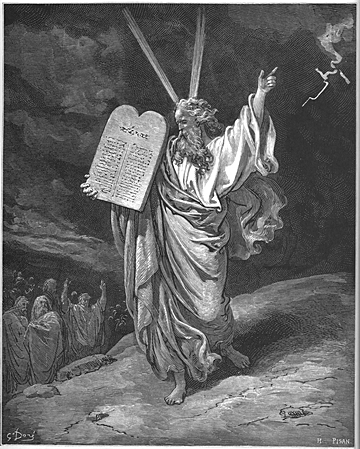2 Corinthians 3
1 Are we beginning again to commend ourselves? Or do we need, as do some, letters of commendation to you or from you?
Vai tad mēs atkal iesākam paši sevi ieteikt? Jeb vai mums arīdzan tā kā citiem vajag ieteikšanas grāmatas uz jums, vai teikšanas grāmatas no jums?
2 You are our letter, written in our hearts, known and read by all men,
Jūs esat mūsu grāmata, rakstīta mūsu sirdīs, zināma un lasāma visiem cilvēkiem.
3 being revealed that you are a letter of Christ, served by us, written not with ink, but with the Spirit of the living God; not in tablets of stone, but in tablets that are hearts of flesh.
Jo jūs esat zināmi, ka esat Kristus grāmata, sataisīta caur mūsu amatu, rakstīta ne ar tinti, bet ar tā dzīvā Dieva Garu, ne uz akmeņu galdiem, bet uz sirds miesīgiem galdiem.
4 Such confidence we have through Christ toward God,
Un tāda uzticība mums ir caur Kristu uz Dievu:
5 not that we are sufficient of ourselves to account anything as from ourselves; but our sufficiency is from God,
Ne ka mēs no sevis pašiem esam derīgi, ko laba domāt tā kā no sevis pašiem; bet ka esam derīgi, tas ir no Dieva;
6 who also made us sufficient as servants of a new covenant, not of the letter but of the Spirit. For the letter kills, but the Spirit gives life.
Tas mūs arī ir darījis derīgus, kalpot jaunai derībai, ne raksta zīmei, bet Garam; jo raksta zīme nokauj, bet Gars dara dzīvu.
7 But if the service of death, written engraved on stones, came with glory, so that the children of Israel could not look steadfastly on the face of Moses for the glory of his face, which was passing away,
Un ja tam nāves amatam, kas iezīmēts raksta zīmēs un akmeņos, bijis spožums, tā ka Israēla bērni nevarēja uzskatīt Mozus vaigu viņa vaiga spožuma dēļ kam bija jāzūd:
8 won’t service of the Spirit be with much more glory?
Kā lai nebūtu jo vairāk spožuma tam Gara amatam?
9 For if the service of condemnation has glory, the service of righteousness exceeds much more in glory.
Jo ja tam pazudināšanas amatam bijis spožums, tad jo vairāk spožuma ir tam taisnošanas amatam pārpārim.
10 For most certainly that which has been made glorious has not been made glorious in this respect, by reason of the glory that surpasses.
Šo uzlūkojot ir tā kā bez spožuma tas, kam spožums bijis, tā jo pārlieku lielā spožuma dēļ.
11 For if that which passes away was with glory, much more that which remains is in glory.
Jo ja tam, kam bija zust, bijis spožums, tad jo vairāk spožuma ir tam, kas pastāv.
12 Having therefore such a hope, we use great boldness of speech,
Tāpēc ka mums ir tāda cerība, tad runājam ar lielu drošību.
13 and not as Moses, who put a veil on his face so that the children of Israel wouldn’t look steadfastly on the end of that which was passing away.
Un ne tā, kā Mozus, kas apsegu lika uz savu vaigu, lai Israēla bērni nemanītu, uz ko zīmējās tas (spožums, ) kam bija zust.
14 But their minds were hardened, for until this very day at the reading of the old covenant the same veil remains, because in Christ it passes away.
Bet viņu sirdis ir apcietinātas; jo līdz šai dienai viņiem veco derību lasot tas pats apsegs paliek un netop atsegts, jo tas zūd caur Kristu.
15 But to this day, when Moses is read, a veil lies on their heart.
Bet līdz šai dienai, kad Mozus top lasīts, apsegs karājās priekš viņu sirdīm.
16 But whenever someone turns to the Lord, the veil is taken away.
Tomēr kad viņi atgriežas pie Tā Kunga, tad tas apsegs top noņemts.
17 Now the Lord is the Spirit; and where the Spirit of the Lord is, there is liberty.
Bet Tas Kungs ir Tas Gars. Kur nu Tā Kunga Gars, tur ir svabadība.
18 But we all, with unveiled face seeing the glory of the Lord as in a mirror, are transformed into the same image from glory to glory, even as from the Lord, the Spirit.
Bet nu mēs visi atsegtā vaigā skatīdami Tā Kunga spožumu kā spieģelī, topam pārvērsti tai pašā ģīmī no spožuma uz spožumu, tā kā no Tā Kunga Gara.





















